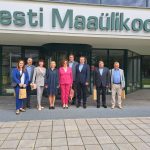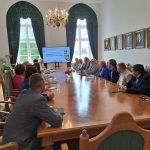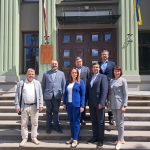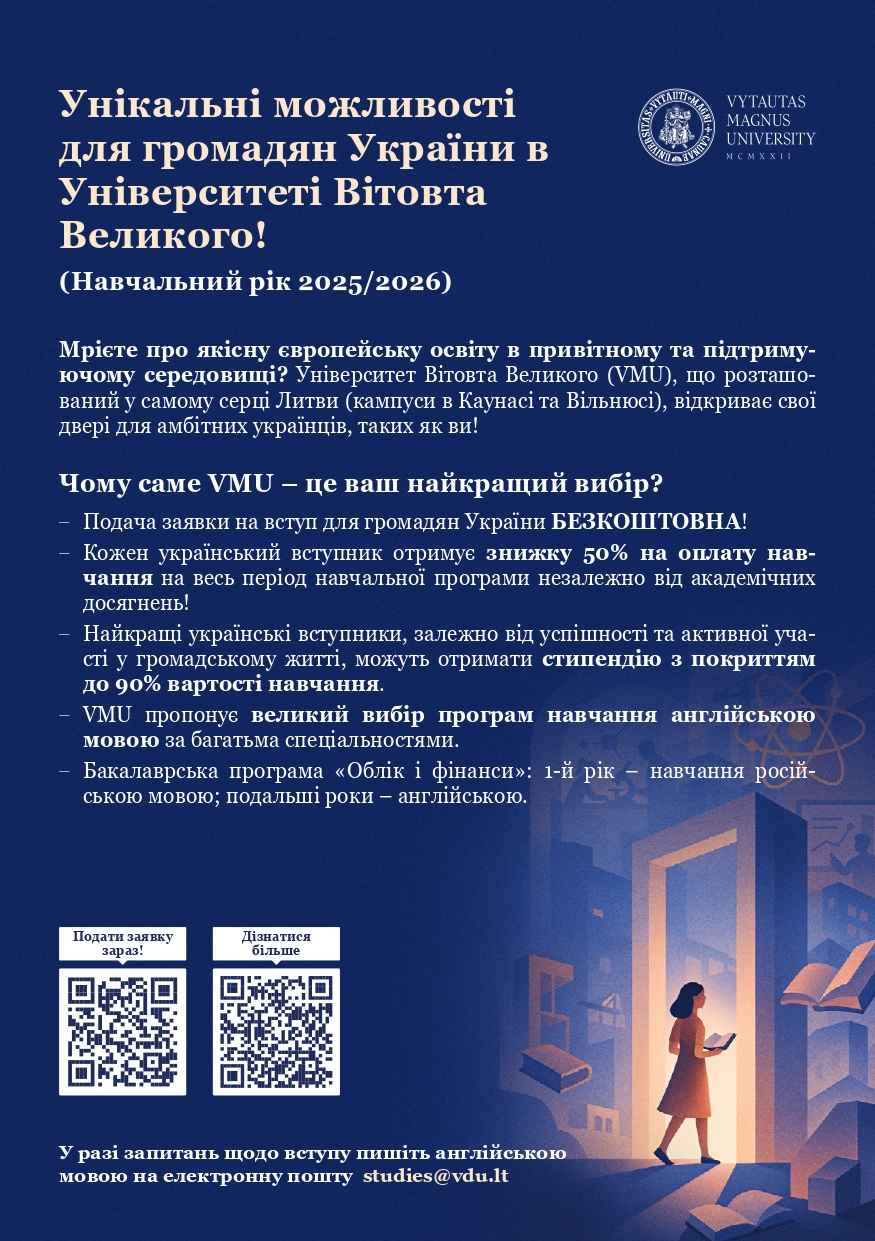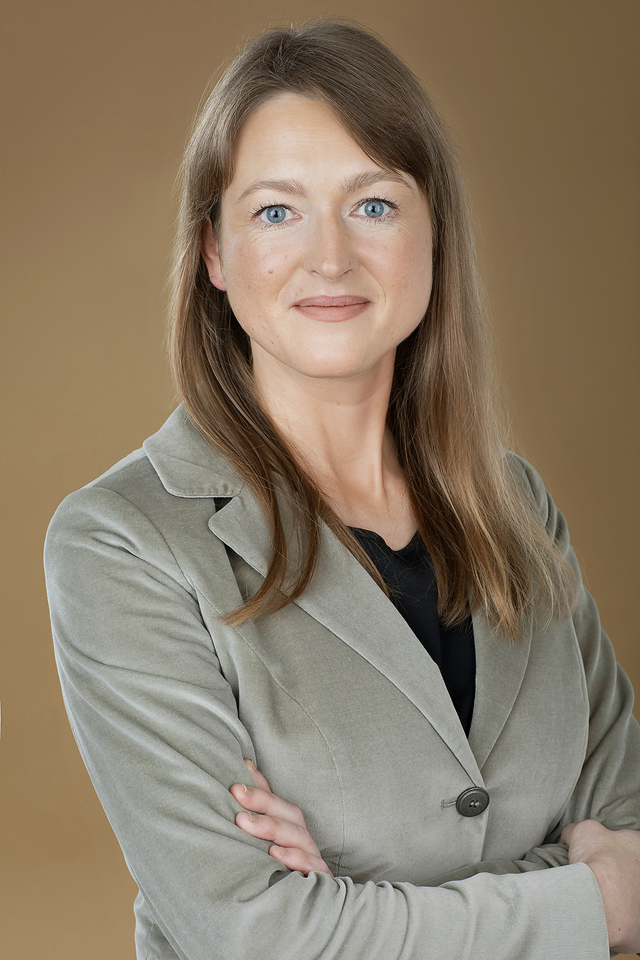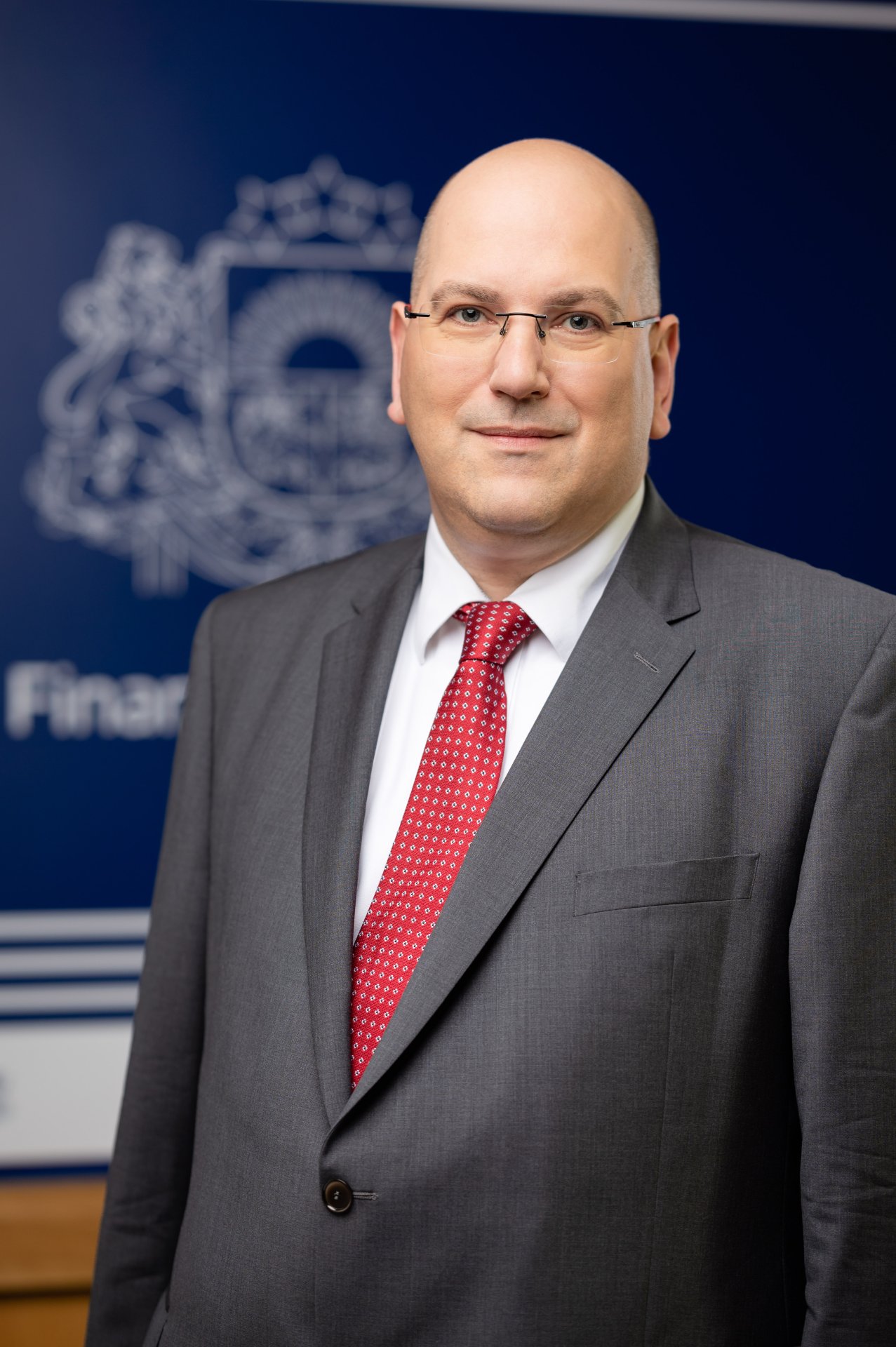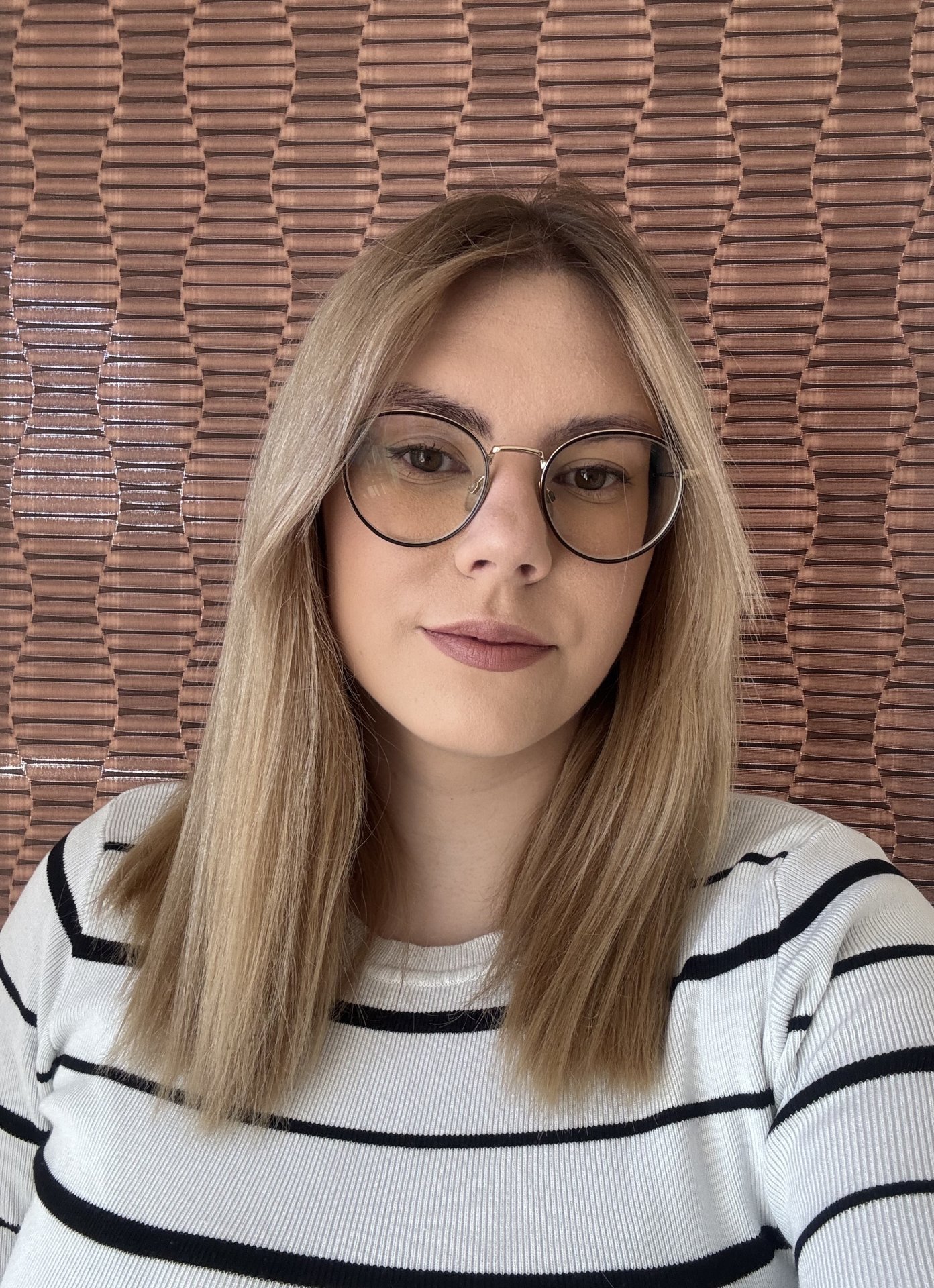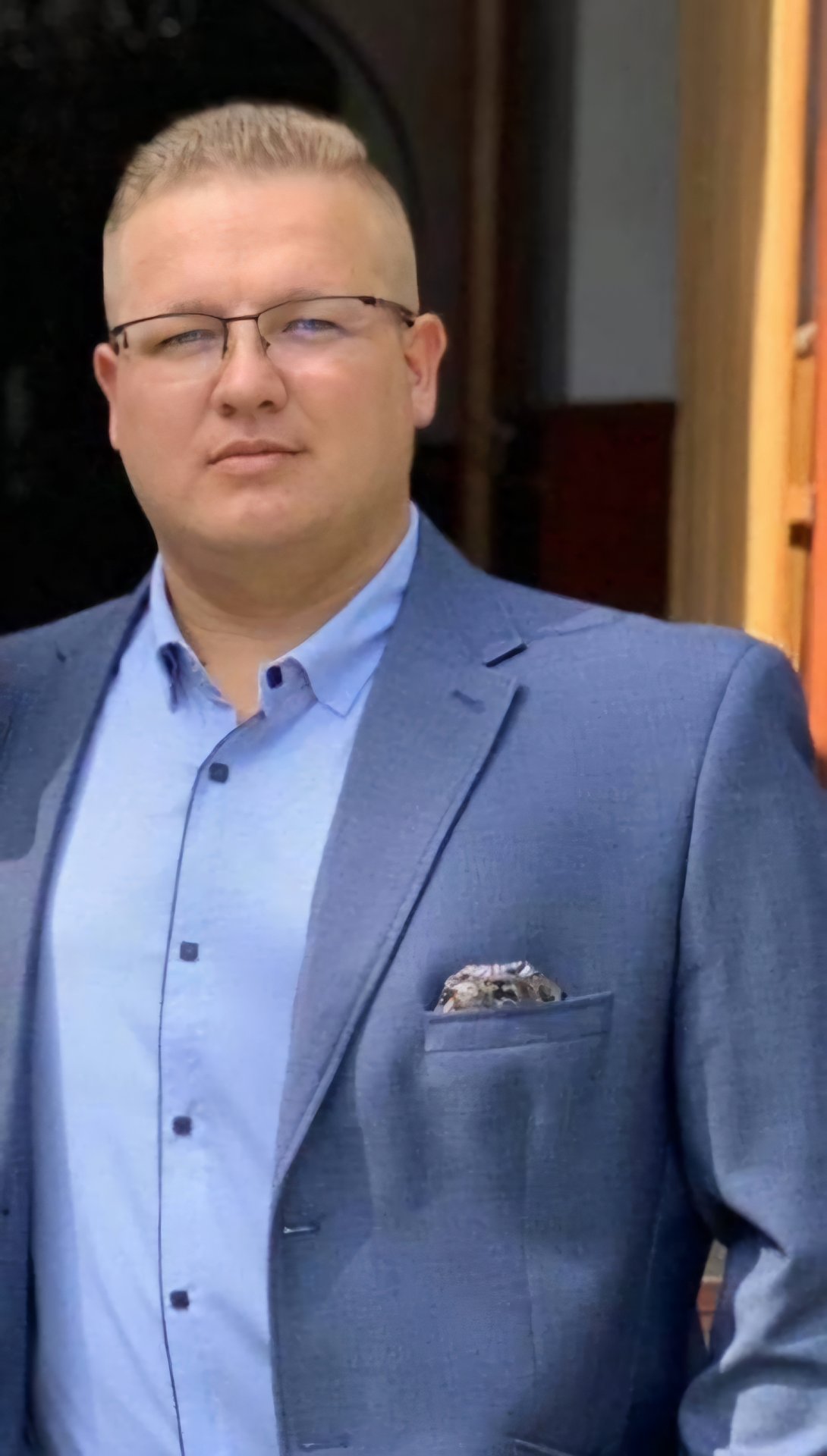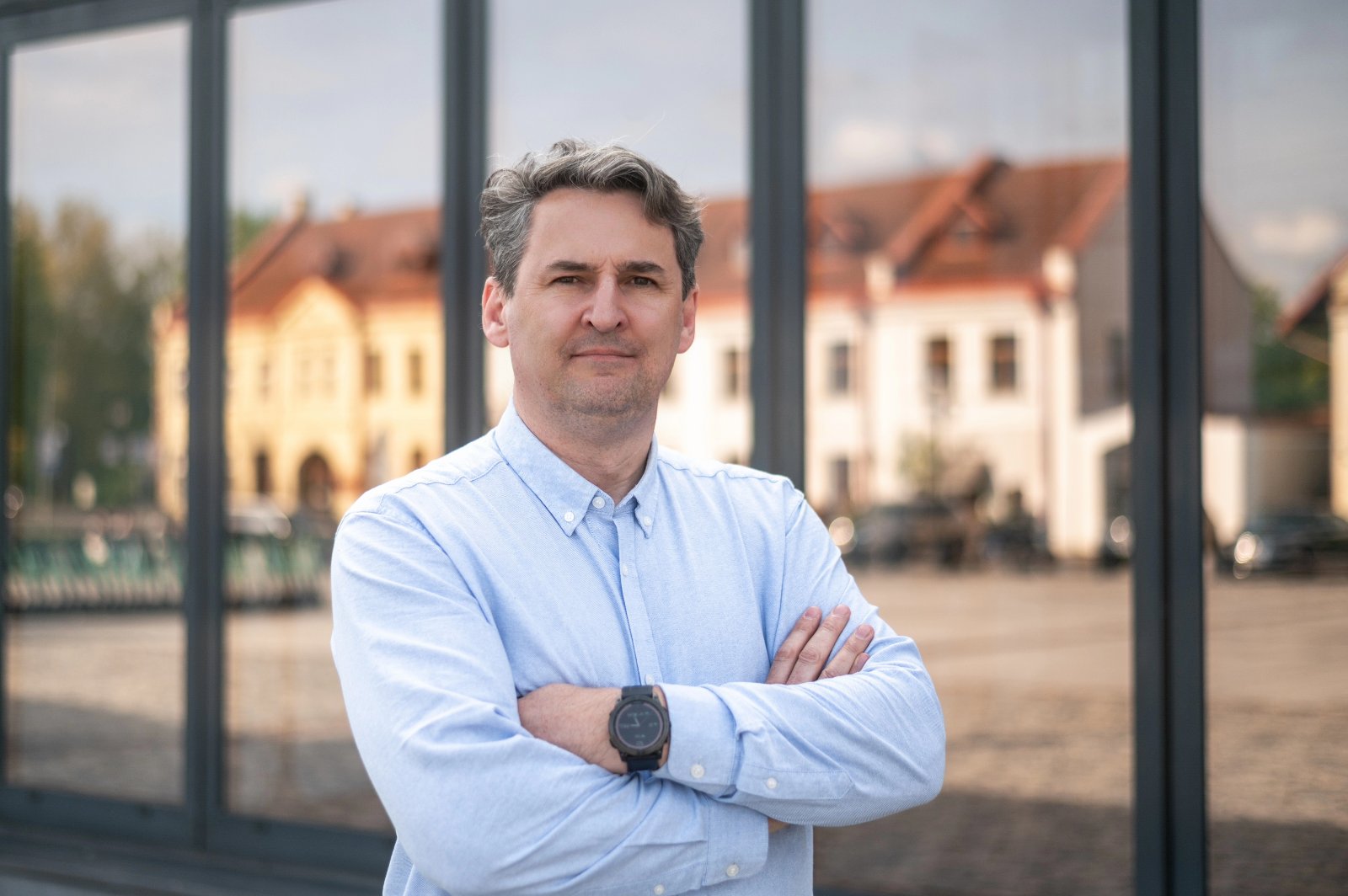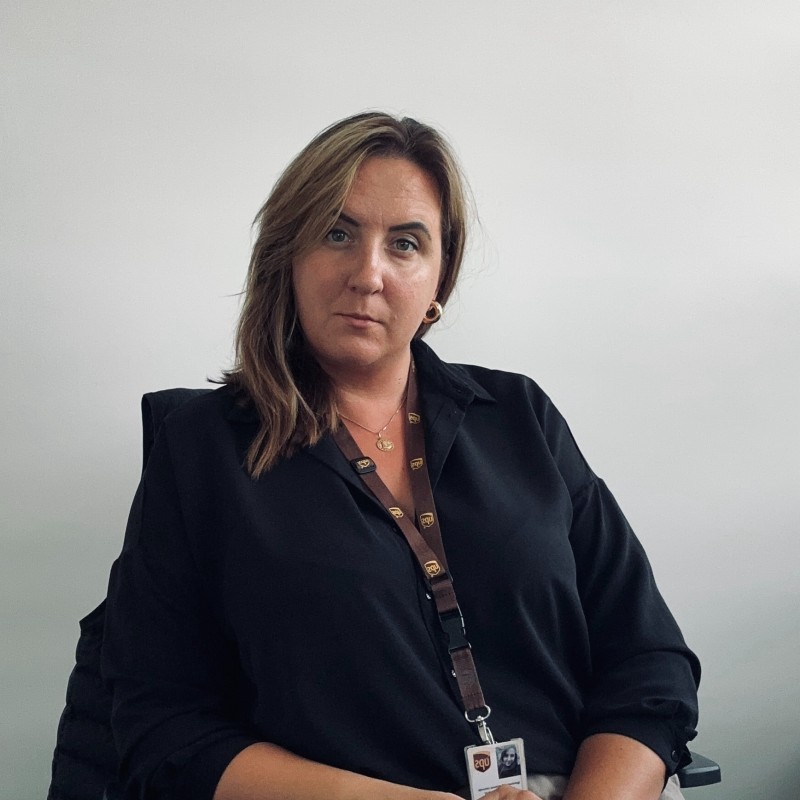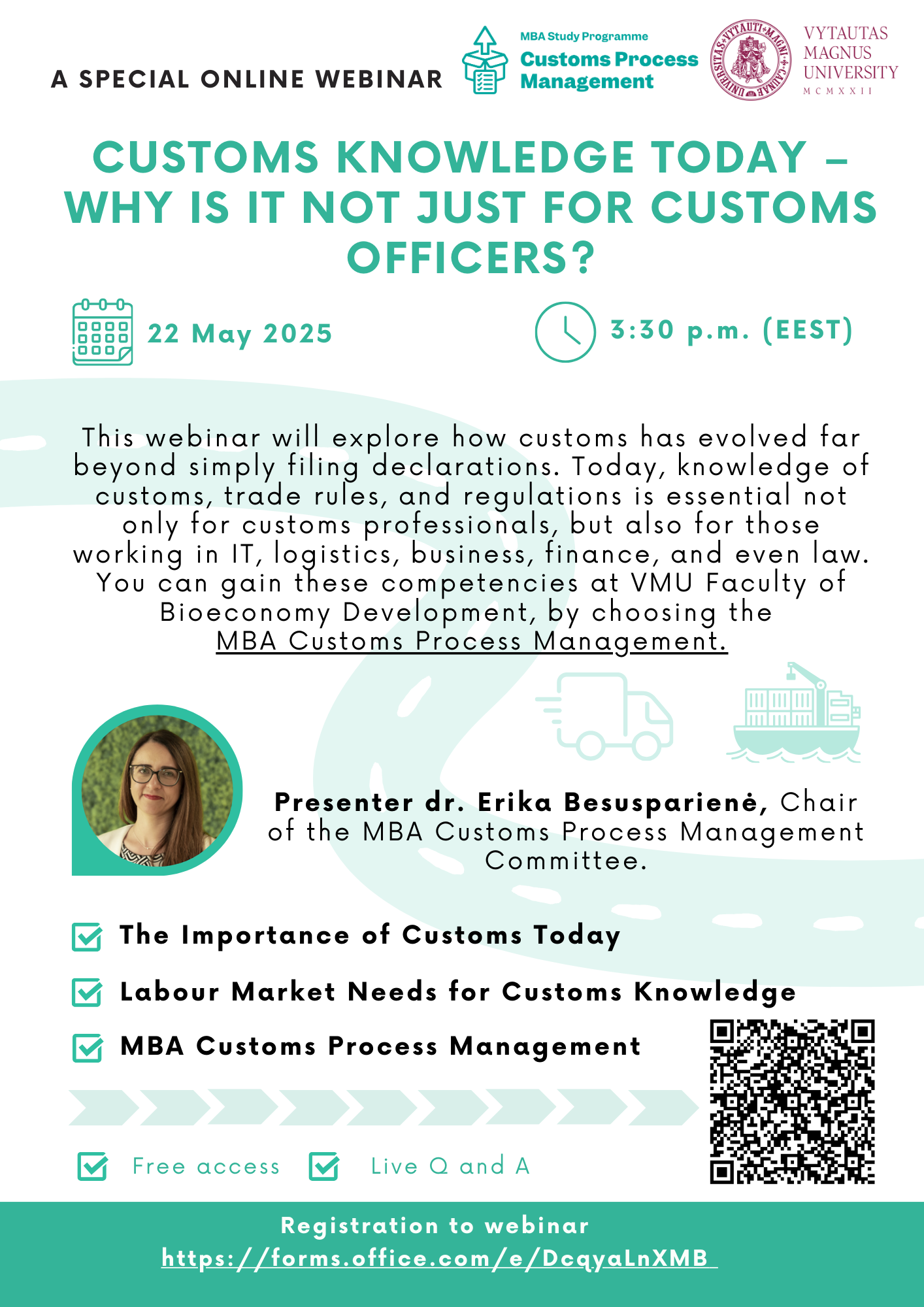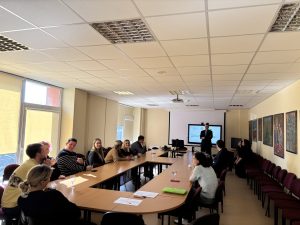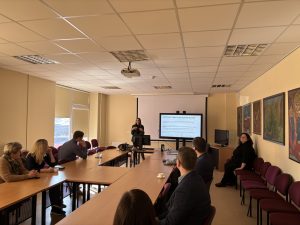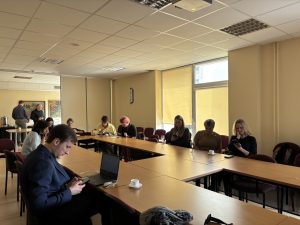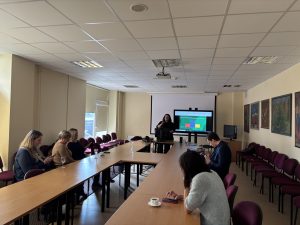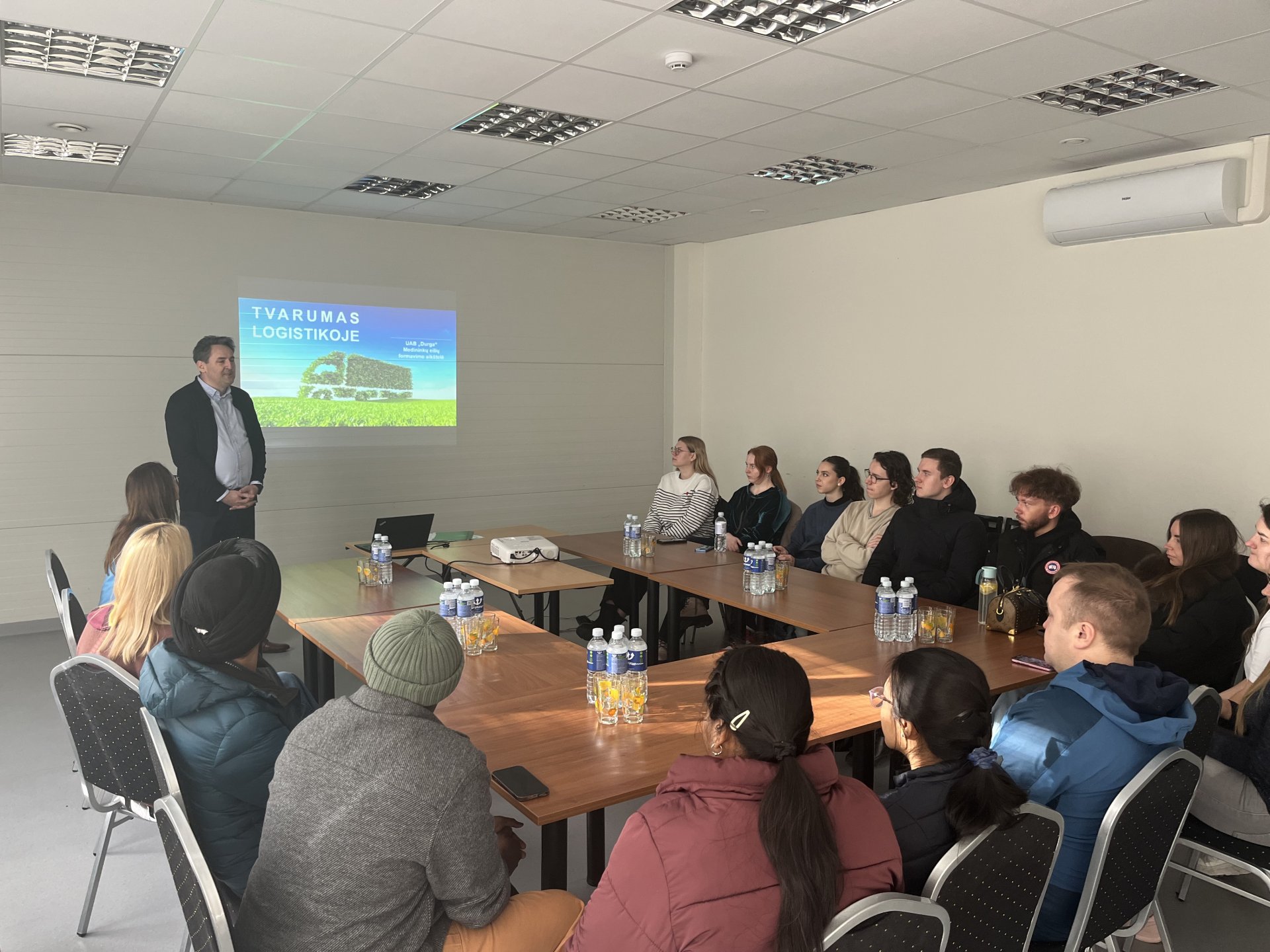Moments from the VMU Agriculture Academy Graduation Ceremony (photo gallery)
On June 19, a special chapter was written in the life book of graduates from Vytautas Magnus University Agriculture Academy – on this day, diplomas were awarded to the young creators of a sustainable future, conferring Bachelor’s and Master’s degrees.
Access to the photo galleries is granted only to users with a VMU email address.
Strengthening the Partnership between VMU Agriculture Academy, Estonian University of Life Sciences, and Latvia University of Life Sciences and Technologies – Shared Visions for the Future
A delegation of leaders from the Vytautas Magnus University (VMU) Agriculture Academy, led by Chancellor Prof. Dr. Astrida Miceikienė, along with Vice-Chancellor Prof. Dr. Aušra Blinstrubienė, Head of the Administrative Group Dr. Laima Skauronė, Dean of the Faculty of Agronomy Assoc. Prof. Dr. Aida Adamavičienė, Dean of the Faculty of Bioeconomy Development Prof. Dr. Bernardas Vaznonis, Dean of the Faculty of Engineering Assoc. Prof. Dr. Rolandas Domeika, and Dean of the Faculty of Forest Sciences and Ecology Prof. Dr. Vitas Marozas, visited two strategic partner universities in June – the Estonian University of Life Sciences (EMÜ) in Tartu and the Latvia University of Life Sciences and Technologies (LBTU) in Jelgava.
The aim of this visit was to strengthen the partnership between the three Baltic life sciences institutions by discussing the expansion of joint projects, enhancing the international dimension of studies, developing academic and student exchange programs, and participating in international academic initiatives. Throughout the visit, intensive discussions were held on double degree opportunities, collaborative research initiatives, and inter-institutional cooperation.
At the Estonian University of Life Sciences, particular attention was given to science policy and strengthening project-based activities. The open, professional, and warm communication with EMÜ representatives not only encouraged new ideas but also reaffirmed the importance of shared values in shaping long-term collaboration. Meanwhile, the Latvia University of Life Sciences and Technologies left a strong impression with its state-of-the-art research infrastructure – ranging from plant protection and forestry to alternative fuels and interdisciplinary science laboratories. During the visit, significant personal contacts were established with LBTU researchers and administrators, and further cooperation within the BOVA network, blended intensive programs (BIP), and academic conferences was discussed.
The VMU Agriculture Academy sincerely thanks Rector Ülle Jaakma of EMÜ and Rector Irina Arhipova of LBTU and their teams for their warm hospitality, professional dialogue, and genuine openness to collaboration. This visit further strengthened the commitment of all three institutions to shaping a sustainable and innovative future in the field of life sciences across the Baltic region.
During the visit, the delegation also had the opportunity to explore the historic Old Town of Tallinn, while free time in Tartu and Jelgava offered a chance to experience the unique cultural and historical atmosphere of both cities.
The VMU Agriculture Academy is pleased with this new stage of strengthened cooperation and eagerly awaits the arrival of its international colleagues in Lithuania for the international conference “Rural Development 2025,” which will take place on October 1–3 at the VMU Agriculture Academy. More information about the conference is available at https://ruraldevelopment.lt
For more information about our partner universities:
Estonian University of Life Sciences – https://www.emu.ee/en
Latvia University of Life Sciences and Technologies – https://www.lbtu.lv
Graduation ceremony
On 19 June, Vytautas Magnus University Agriculture Academy invites graduates to participate in festive graduation events.
FESTIVE HALL OF VMU AGRICULTURE ACADEMY | STUDENTŲ G. 11, AKADEMIJA, KAUNAS DISTRICT
10:00 a.m. Graduation ceremony of the Faculty of Bioeconomy Development of VMU Agriculture Academy
12:00 p.m. Graduation ceremony of the Faculty of Agronomy of VMU Agriculture Academy
2:00 p.m. Graduation ceremony of the Faculty of Forest Sciences and Ecology of VMU Agriculture Academy
4:00 p.m. Graduation ceremony of the Faculty of Engineering of VMU Agriculture Academy
We would like to inform you that the event may be filmed and/or photographed, and you may appear in event photos or videos that could be published across various media platforms.
Exceptional Opportunities for Ukrainian Citizens at VMU Agriculture Academy
Academic Year 2025/2026 | Vytautas Magnus University, Lithuania
Vytautas Magnus University (VMU) Agriculture Academy, located in the vibrant city of Kaunas, Lithuania, invites ambitious Ukrainian citizens to join its diverse academic community. Offering high-quality European education in a supportive and inclusive environment, VMU is proud to stand with Ukraine by providing accessible education opportunities during challenging times.
Why Choose VMU Agriculture Academy?
- No Application Fee. All Ukrainian applicants are exempt from the application fee.
- 50% Tuition Fee Waiver. Every Ukrainian student automatically receives a 50% discount on tuition for the entire duration of their studies, regardless of academic performance.
- Scholarships up to 90%. Top-performing students with outstanding academic achievements and active civic engagement may receive scholarships covering up to 90% of tuition costs.
- English-Taught Programmes. VMU offers a wide range of undergraduate programmes in English, designed to equip students with internationally competitive skills and knowledge.
Featured Study Programmes:
- Accounting and Finance. Start your journey with the first year taught in Russian and continue the remaining years in English. Learn more & apply.
- Sustainable Engineering. A forward-thinking programme aimed at those passionate about environmental responsibility and innovation. Learn more & apply.
Apply Today
Take the first step toward a brighter academic future at VMU Agriculture Academy. Join a university that values excellence, community, and your potential.
For questions or assistance with the application process, please contact VMU admissions team at studies@vdu.lt.
ERASMUS BIP at the Faculty of Bioeconomic Development of the VMU Agriculture Academy: exploring AI in economic modelling
From May 12 to 16, 2025, the Faculty of Bioeconomy Development at Vytautas Magnus University Agriculture Academy (VMU AA) welcomed an inspiring cohort of doctoral and master’s students from across Europe to participate in the Erasmus Blended Intensive Programme (BIP) titled “AI in Economic Modelling.” This international event combined virtual and on-site learning, with the preparatory session held online on May 5 and the in-person programme taking place in Kaunas, Lithuania.
The participant group reflected the programme’s truly European character: doctoral students arrived from Finland, Latvia, Estonia, Romania, Croatia, and Lithuania, while a group of highly motivated master’s students represented Poland. Their diverse backgrounds and shared interest in advanced AI applications in economics created a vibrant and collaborative academic environment.
AI Tools for the Economists of Tomorrow
The core of the programme focused on the integration of artificial intelligence in the construction and simulation of economic models. Students were introduced to state-of-the-art methods such as neural networks, fuzzy systems, probabilistic reasoning, and evolutionary computing. Topics in explainable AI were emphasized, along with comparative insights on traditional mathematical and statistical modelling.
The lectures were delivered by an esteemed lineup of professors, including Prof. Dr. Vesa Niskanen (VMU & University of Helsinki), Prof. Laszlo T. Koczy (Budapest University of Technology and Economics), Academician Janusz Kacprzyk (Polish Academy of Sciences), Prof. Chister Carlsson (IAMSR, Finland), and Prof. Dr. Irina Archipova (Latvia University of Life Sciences and Technologies). Their sessions spanned topics from decision support systems and fuzzy analytics to the differences between machine learning and statistical models.
Cultural Enrichment and Networking
Beyond the academic programme, students had the opportunity to explore Lithuanian culture and history through a guided excursion in Kaunas Old Town. Social gatherings, including a welcome dinner at the traditional “Medžiotojų užeiga” restaurant, encouraged participants to network and build lasting academic friendships.
Panel discussions and informal conversations enhanced the sense of collaboration, creating an atmosphere of openness and intellectual curiosity. The week blended structured learning with spontaneous exchange, fostering a strong sense of international academic community.
A Platform for Future Collaboration
This course was also part of the collaborative activities within the BOVA-NOVA university network, initiated and supported by the BOVA university network. It reflected the ongoing efforts to strengthen regional cooperation in higher education and research across the Baltic and Nordic countries.
Organized by Dr. Monika Medikienė (VMU Agriculture Academy International Coordinator) and Dr. Ekaterina Makrickienė (VMU Agriculture Academy BOVA Coordinator), with academic leadership from Prof. Dr. Vesa Niskanen (VMU Faculty of Bioeconomy Development and University of Helsinki), the programme granted participants 3 ECTS credits and was financed by the Erasmus+ funds and internal funds of BOVA university network.
The BIP “AI in Economic Modelling” not only empowered students with cutting-edge AI knowledge but also encouraged intercultural dialogue and laid the foundation for future interdisciplinary research collaborations. As AI continues to contribute to the economic landscape, programmes like this play a critical role in preparing the next generation of economists to lead with insight, innovation, and international perspective.
Co-Funded by the European Union. Views and opinions expressed are however those of the author(s) only and do not necessarily reflect those of the European Union or the European Education and Culture Executive Agency (EACEA). Neither the European Union nor EACEA can be held responsible for them.
Sustainability and customs: how international trade rules are changing and why it matters for Your career
International trade today faces new challenges, from geopolitical tensions to climate change. Decisions implemented by the European Union (EU), such as the creation of the EU Customs Data Hub, the application of a carbon border adjustment mechanism, the application of the forestry regulation to international trade, the digital product passport, etc., are not only changing the conditions for the international trade but also call for a new approach to managing supply chains. However, it is important to underline that the EU customs reform, which affects all EU countries, is also changing the role of customs and requires an increasing number of highly skilled specialists and managers.
Customs Process Management – for the next generation of customs and international trade managers
The Faculty of Bioeconomy Development of the Vytautas Magnus University Agriculture Academy (VMU AA), together with the Customs Practitioners’ Association, started discussing these changes five years ago and jointly developed the Master of Business Administration (MBA) programme Customs Process Management. From 2023, the MBA prepares the next generation of customs and international trade managers who understand law, economics, sustainability, and international agreements.
Enrika Naujokė, Director of the Association of Customs Practitioners, co-founder and Director of “CustomsClear”, points out that the EU this year started to tackle over-regulation in order to make the business environment easier and better. At the same time, it has recognised that the administrative burden of compliance has become too high, if not unbearable, for businesses, especially those operating internationally, in more than one jurisdiction. “This is not the only challenge for business, but also for institutions – the shift from a linear to a circular economy, high sustainability requirements, rapid technological developments, and other changes are transforming the way we work and the knowledge and skills we need to have. In this complex, ever-changing environment, those who not only keep up with the changes, but are also involved in their creation and one step ahead, win. The role of highly skilled managers in such an environment is beyond question. Do we have enough of them in Lithuania, in the EU, in the world? I believe that if we had enough, we would first of all have quality regulation, i.e., regulation that does not need to be created first, then interpreted by additional regulation, and then simplified. The role of the education system, the role of universities, is an essential component in meeting today’s challenges”, – says E. Naujokė.
Director of the Association of Customs Practitioners, co-founder and director of “CustomsClear” Enrika Naujokė
A modern approach to new sustainability requirements
EU customs reform has become one of the EU’s top priorities. In 2020, discussions started on the digitalisation of customs processes and the implementation of sustainability objectives in international trade. The EU customs reform was formally launched in 2023 and includes very far-reaching changes. Already from 2028, major changes are underway with the launch of the digital EU’s Customs Hub, but the transformation will continue until 2038. These changes will require customs and international trade managers and specialists to become much more skilled and capable of dealing with complex processes and regulations. This is important to ensure that goods meet all legal, environmental, and sustainability requirements. In addition to the control of goods, customs also have an important tax administration function, ensuring the collection of customs duties, VAT, and excise duties. Efficient tax administration is vital for the revenue of national and EU budgets, for ensuring fair competition, and for protecting the internal market. In today’s world of changing international trade patterns and new sustainability requirements, the ability to understand both tax and customs processes is essential for a career at national and international level.
Dr. Karlis Ketners, MBA Customs Process Management partnership professor and member of the programme committee, who also works for the Latvian Ministry of Finance, notes that customs management (management of customs offices) is one of the most relevant aspects of the qualification in the context of the constant change in management models, methodological and information support. Over the last decades, public administration management has moved from a functional model to a process and service model. There is now a shift towards a cognitive model based on knowledge, using artificial intelligence, neural network models, and hybrid forms of management.
MBA Customs Process Management partnership professor and member of the programme committee Dr. Karlis Ketners
The labour market requires a wide range of customs expertise
A wide range of professionals, from customs brokers and logisticians to future entrepreneurs, choose the MBA Customs Process Management. This highlights the wide and varied need for different skills in today’s labour market. Job advertisements in Lithuania and the EU show that an understanding of customs processes is not only needed for lawyers or economists, but also for managers and specialists working in finance, IT, supply chain, or warehousing.
In the MBA Customs Process Management, K. Ketners teaches students the course “Customs Tax Administration and Management” and highlights the strategic and operational reasons why highly skilled customs managers – both in the public and private sectors – should acquire knowledge and skills in tax administration.
Augustė Karpavičiūtė graduated with a bachelor’s degree in accounting but has now decided to study a new field and has chosen the MBA Customs Process Management. She is happy with her choice, but notes that the study programme is only one year, the pace is really intense, but it is also a very interesting challenge. “What I appreciate most is that the lecturers are not only professionals in their fields, but at the same time, they are very human, often it seems as if we are talking to friends. It is particularly enjoyable to learn from lecturers from different countries, as we learn not only about customs but also about cultural differences. I would recommend this study programme to those who want to acquire/improve their knowledge and “travel around Europe” in one year”, – says A. Karpavičiūtė.
MBA Customs Process Management student Augustė Karpavičiūtė
New career opportunities in a dynamic labour market
Rytis Andriukaitis, who is currently studying an MBA Customs Process Management, is working as a Senior Specialist in Transport Registration at AB “Regitra” and is delighted with his choice of studies. R. Andriukaitis emphasises that the latest knowledge acquired is not only applicable to his current job but also opens up opportunities to enter the labour market. “I chose to study here because of the opportunity to combine my studies with work. I appreciate the fact that the programme is also taught by academics from different countries, which gives a broader perspective on sustainable management, communication, social responsibility, ethics, and international practice, as well as helping me to improve my English language skills”, – says R. Andriukaitis.
New careers and career changes are becoming commonplace in an ever-changing environment. That’s why the MBA Customs Process Management is chosen not only by those working in the customs field, but also by future managers in other fields who are still looking for their own path.
AB “Regitra” transport registration senior specialist, MBA Customs Process Management student Rytis Andriukaitis
Jonas Aleksonis, a graduate of MBA Customs Process Management, representing UAB “Durga”, recalls that he entered the customs field in 1997, when Lithuania was just developing its modern logistics and trade infrastructure. At that time, the legal and practical environment of customs was still emerging, and new professionals were growing up alongside it. “Although my background was in IT, working in customs quickly became not only a career path but also a personal challenge. Customs were constantly changing and evolving. Lithuania was striving for European standards, which for me meant continuous development and learning new aspects of customs. Over almost three decades, my responsibilities have evolved step by step, from technical support to working with clients, managing processes, and finally securing AEO status in the company”, – says the study programme graduate.
Study – an investment in your future
J. Aleksonis says that his entire career has been driven by a desire to acquire a high level of knowledge that would help him not only to understand processes better, but also to manage them in a targeted way. The MBA Customs Process Management was a unique opportunity to achieve this. J. Aleksonis notes that the studies were of practical value, the lecturers were professionals in their field and provided not only theoretical knowledge but also real business experience. “I appreciate the emphasis on contemporary topics such as sustainability, environmental impact, risk management, and digitalisation. These are all integral to responsible and competitive business today. For me, it was not only a consolidation of my professional career, but also an investment in the future. These are studies that really change the way you think and open up new opportunities in an international context”, – he says.
Representative of UAB “Durga”, MBA Customs Process Management graduate Jonas Aleksonis
Gertrūda Bakšienė, a graduate of the MBA Customs Process Management, who works as a coordinator of the customs brokerage group at UAB “Skubios siuntos” (UPS authorised representative in Lithuania), is happy about her decision to complete her master’s studies. Although she once studied marketing, she became fascinated with customs, where she still works today. G. Bakšienė notes that in the customs environment, it is extremely important to keep up to date with changing legislation and to have a strong knowledge base. “Every company that has trade relations with third countries should work with as many specialists as possible in this field, and the need for such specialists will only grow as the upcoming changes to the Union Customs Code will be of great importance to exporters and importers. These studies are an excellent tool to broaden your knowledge, to go deeper into the topics of most interest and to discuss with experienced lecturers – professionals in their field from different countries”, – says G. Bakšienė.
UAB “Skubios siuntos” (UPS authorized representative in Lithuania) coordinator of the customs brokerage group, MBA Customs Process Management graduate Gertrūda Bakšienė
Knowledge gained is internationally relevant
The MBA Customs Process Management is open internationally, with lectures delivered remotely and in English. It should be noted that the studies offer the opportunity to gain knowledge from a team of international lecturers (Ireland, Belgium, Latvia, Ukraine, Finland, Lithuania). Although the MBA Customs Process Management is open to undergraduates in accounting, finance, economics, business, management and law, the MBA Customs Process Management is open to undergraduates in a wide range of fields: you will be required to complete additional studies, but this is an excellent opportunity for retraining in the customs field, where the demand for staff is growing.
Partnership Professor Dr. K. Ketners notes that the knowledge acquired in the MBA Customs Process Management at the EU level is important for graduates’ professional careers. He notes that by acquiring revenue administration skills at the EU level, customs managers can ensure compliance with legislation, mitigate risk, contribute to EU objectives, and enhance their strategic value in a changing trade and regulatory environment.
The quality of the MBA Customs Process Management is underlined by the decision to award the EU Customs Recognition Certificate, which demonstrates that the programme meets the EU quality requirements for customs degree programmes. Graduates of the study programme have career opportunities in both the public and private sectors.
Free Online Webinar “Customs knowledge today – why is it not just for customs officers?”
Customs has long gone beyond filing declarations. Today, knowledge of customs, trade rules, and regulations is required by IT professionals, logistics, businesspeople, financiers, and even lawyers. Customs knowledge can be acquired at Vytautas Magnus University Agriculture Academy Faculty of Bioeconomy Development by choosing the MBA programme Customs Process Management, which meets the requirements of the EU customs competences.
Vytautas Magnus University Faculty of Bioeconomy Development invites you to join a free online webinar on 22 May 2025, at 15:30 (EET, Lithuania time zone) to explore the importance of customs knowledge.
What will be discussed in the webinar?
- The importance of customs today.
- Labour market needs for customs knowledge.
- MBA Customs Process Management.
The webinar will be presented by dr. Erika Besusparienė, Chair of the MBA Customs Process Management Committee.
Information of webinar:
Date: 22 May 2025
Time: 15:30 (EET, Lithuania time zone)
The planned duration of the webinar will be approximately one hour.
Format: Online Webinar via MS TEAMS
Language: The webinar is held in English.
The link to join the MS TEAMS platform before the webinar will be sent to the email address provided during registration.
Seminar “The Well-being of Farmers and Agricultural Workers: Experiences, Perspectives, Challenges”
On 28 March 2025, during the international agricultural exhibition “Ką pasėsi… 2025”, the SafeHabitus project hosted a seminar titled “The Well-being of Farmers and Agricultural Workers: Experiences, Perspectives, Challenges.”
The seminar presented insights into the well-being and quality of life of farmers in different countries participating in the SafeHabitus project. It also discussed the findings of a scientific literature review on the social protection of farmers and agricultural workers. A discussion was held on social security in agriculture, financial instability, the specifics of agricultural work, existing risks, and public attitudes toward agricultural workers. The seminar was attended by farmers, representatives from the Agriculture Academy of Vytautas Magnus University, the Lithuanian Agricultural Advisory Service, the National Paying Agency, and other organizations interested in the well-being of those working in agriculture.
Media contact: National CoP representative – Anastasija Novikova (Lithuania), anastasija.novikova@vdu.lt
More information:
SafeHabitus project is a four-year project coordinated by TEAGASC Ireland, funded by the European Union as part of the Horizon Europe Programme, grant agreement number 101084270. This multi-actor project aims to strengthen Farm Health and Safety Knowledge Innovation Systems (FHS KIS) and support the EU transition to social sustainability in farming.
Admission to PhD studies at VMU Agriculture Academy 2025
Vytautas Magnus University (VMU) Agriculture Academy offers doctoral studies in 8 fields of research in natural, social, technological and agricultural sciences.
Application for admission to doctoral studies is carried online.
| Research Area | Research field | Dates of receipt of documents |
| Natural sciences | Ecology and Environmental Science | 03 06 2025 – 22 08 2025 |
| Technological sciences | Environmental Engineering | 05 06 2025 – 20 06 2025 (no later than 5 p.m.) 01 04 2025 – 15 04 2025 (no later than 5 p.m.)* |
| Mechanical Engineering | 05 06 2025 – 20 06 2025 (no later than 5 p.m.) 01 04 2025 – 15 04 2025 (no later than 5 p.m.)* |
|
| Transport Engineering | – |
|
| Agricultural sciences | Agronomy | 05 06 2025 – 31 07 2025 |
| Forestry | 05 06 2025 – 31 07 2025 | |
| Social sciences | Economy | – |
| Management | – |
*Submission of documents for the recognition of qualification obtained abroad in Lithuania (for those applicants who have obtained their education at a foreign higher education institution and do not have a document confirming the recognition of their diploma in Lithuania).
The application for participation in the admission to doctoral studies and scanned copies of the necessary documents are provided online online registration.
The application will be registered, when will be filled all necessary parts of Admission to doctoral studies online system epasirasymas.vdu.lt.
The application is considered not to be registered if all the necessary documents or information is not provided.
More information:
Universiteto st. 8A – 202, LT-53341 Akademija, Kaunas district.
Phone +370 37 752 254
E-mail: monika.brimaite@vdu.lt
Web-page: https://zua.vdu.lt/en/
Universiteto st. 8A – 219, LT-53341 Akademija, Kaunas district.
Phone +370 37 209 815
E-mail: doktorantura@vdu.lt
Web-page: vdu.lt/phd
Visit to the Medininkai Border: valuable insights into customs operations for customs and logistics students
On March 6, 2025, students of MBA Customs Process Management, Master of Business Logistics and Bachelor of Logistics and Commerce visited the border queuing terminal at the Medininkai border operated by UAB “Durga”. During the visit, the social partners gave an overview of the development of Lithuanian customs from the country’s independence until today. The students were accompanied by their teachers assoc. prof. dr. Erika Besusparienė, assoc. prof. dr. Milita Vienažindienė and lect. Kristina Gesevičienė.
The representatives of UAB “Durga” presented the history of the company since its establishment in 1994 and discussed the development of customs procedures after Lithuania regained its independence. The social partners gave an insight into the first customs posts, their activities and cargo movement control. Students learned how customs procedures have changed over three decades, influenced by technological advances and shifts in international trade.
The visit also covered the current organization of the movement of cargo vehicles through the Medininkai border post. A key role in this process is played by the truck queuing terminal at Medininkai, which helps regulate the flow of traffic, ensures smooth and efficient cargo inspections and reduces congestion at the border.
Jonas Aleksonis, a representative of UAB “Durga” and a graduate of the MBA Customs Process Management, presented how the company incorporates sustainability principles. To improve working conditions for truck drivers, the terminal offers showers, gym equipment, a cafeteria and a shop. In addition, local rural communities provide catering services, allowing drivers to enjoy quality meals while supporting the local economy.
Environmental sustainability is another priority for the company. To minimize environmental impact, oil pollutants are collected in a special oil product trap. Up to 10 tons of pollutants are removed from the terminal each year, contributing to a cleaner environment and sustainable business practices.
The visit to the Medininkai border terminal provided the students with both theoretical knowledge and first-hand experience of how the customs and logistics sectors operate. Such cooperation with social partners is crucial for the younger generation, helping them to acquire practical skills and understand the complexities of logistics and customs operations in a real working environment.
On their way back, the students also visited the Medininkai Memorial to honor the Lithuanian border guards who tragically lost their lives, reflecting on this significant event in the country’s history. Their journey then continued to the historic Medininkai Castle, one of Lithuania’s oldest and best-preserved defensive castles dating back to the Grand Duchy of Lithuania. The students were fascinated to learn about the castle’s role during the reign of Vytautas Magnus and its importance in national defense. This visit not only enriched their historical knowledge, but also provided a deeper appreciation of Lithuania’s cultural heritage.
- About
- About Agri-Food BM programme
- Academic infrastructure units
- All events
- All news
- Aquaculture center
- Archives
- Biosystems Engineering
- Center of Animal husbandry selections, breeding values and dissemination
- Centre of Biosystems Engineering, Biomass Energetics and Water Engineering
- Circular Biobased Economy
- Climate change
- Contacts
- Contacts
- Events
- Events archive
- Faculties
- For business and society
- Innovative products
- International Cooperation
- International projects
- Joint Research Centre of Agriculture and Forestry
- Journal “Human and Nature Safety”
- Laboratory of Technology Safety
- Laboratory services
- Living Environment
- More labs
- News
- Project
- QUALS project description
- Research
- Research areas
- Scientific events
- Scope
- Sitemap
- Studies
- Study programmes
- Technology Transfer & Commercialization
- THE ROLE OF ORGANISATION IN THE PROJECT
- THE ROLE OF ORGANISATION IN THE PROJECT
- THE ROLE OF ORGANISATION IN THE PROJECT
- The Study Process
- Žemės ūkio žinių ir inovacijų sistemos klasteris





